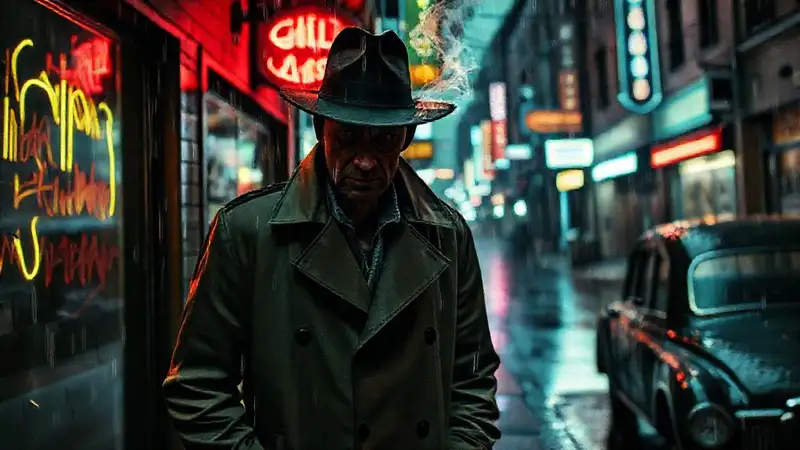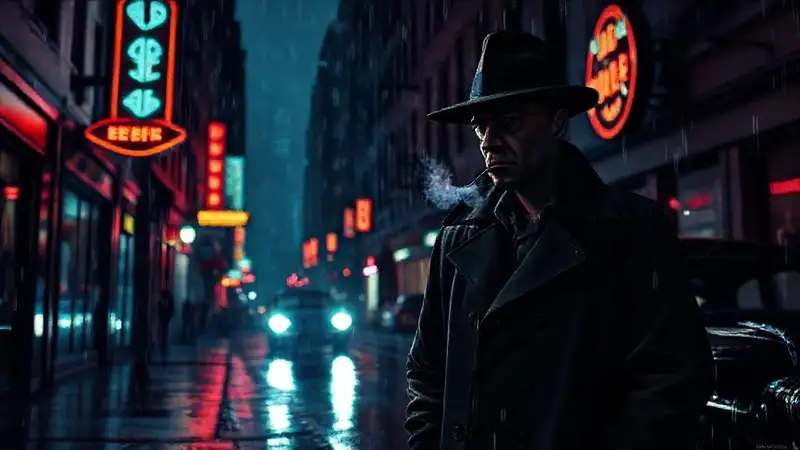What distinguishes hardboiled detective fiction from other mysteries

The world of mystery literature is vast and varied, encompassing everything from cozy amateur sleuths baking scones while solving murders to intricate police procedural dramas. However, within this landscape exists a distinct and gritty subgenre: hardboiled detective fiction. While all mystery narratives involve solving a puzzle and uncovering hidden truths, hardboiled stories possess a specific tone, style, and thematic focus that set them apart from their more gentle counterparts. Understanding these differences is key to appreciating the unique power and lasting appeal of this influential genre.
Hardboiled detective fiction emerged in the early 20th century, particularly during the American Prohibition era. It arose as a reaction to the perceived naiveté and optimism of earlier mystery writing, reflecting a growing disillusionment with societal norms and the harsh realities of urban life. The genre's popularity has ebbed and flowed, but its influence remains deeply embedded in crime fiction and popular culture, continuing to shape how we perceive detectives, criminals, and the dark underbelly of society.
## Cynicism and Moral Ambiguity
One of the most defining features of hardboiled fiction is its pervasive cynicism. Unlike the often morally upright protagonists in classic mysteries, hardboiled detectives are frequently jaded, world-weary individuals who have seen the worst of humanity. They operate in a world where justice is often elusive and corruption is rampant, leading them to question the very foundations of morality. This cynicism isn't merely a character trait; it's woven into the narrative fabric, influencing the plot and the overall atmosphere.
The sense of cynicism extends to the characters surrounding the detective. No one is truly innocent; every individual is tainted by self-interest or burdened by secrets. This constant exposure to deceit and despair shapes the detective's worldview, contributing to their often detached and fatalistic attitude. Their reliance on pragmatism over idealism is a direct consequence of the environment they navigate.
This breeds a remarkable degree of moral ambiguity. Hardboiled detectives might bend the rules, resort to violence, or even collaborate with questionable characters to achieve their goals. While they may strive for a sense of justice, their methods are rarely clean or conventional. This blurring of the lines between good and bad characters adds a layer of complexity and realism rarely found in other mystery genres, making the protagonist themselves a complex and flawed individual.
## The Protagonist: The Hardboiled Detective
The hardboiled detective is a quintessential figure in the genre, instantly recognizable for their specific attributes. They are rarely brilliant intellectuals; instead, they are tough, resourceful, and skilled at street smarts and observation. Their intelligence isn't about academic knowledge but about understanding human behavior and navigating the treacherous landscapes of the urban underworld. They often have a troubled past, haunted by personal demons or professional failures.
This character type is frequently portrayed as a loner, operating outside of the formal structures of law enforcement. They prefer to work alone, distrusting authority and relying on their own instincts. While occasionally interacting with the police, their relationship is often strained, marked by mutual suspicion and a shared understanding of the system's limitations. The detective’s independence is core to their persona and actions.
The hardboiled detective often possesses a distinctive style of speech and dress – sharp, terse dialogue, a fedora, a trench coat, and a permanent air of weariness. This visual and verbal distinctiveness not only contributes to the genre’s aesthetic but also reinforces the detective’s image as a figure operating on the fringes of society. Their very appearance communicates their profession and personality.
## Style and Language: Sharpening the Narrative

Hardboiled fiction is known for its distinctive writing style, characterized by tough, spare prose and a strong sense of realism. Authors frequently utilize first-person narration, allowing readers to experience the case through the detective's cynical perspective. The language is often gritty and evocative, filled with slang and street jargon that authentically captures the atmosphere of the urban setting. This contributes to the authenticity of the world being built.
The use of short, declarative sentences, fragmented thoughts, and internal monologues creates a sense of immediacy and tension. The focus is on action and dialogue rather than elaborate descriptions, mirroring the detective's pragmatic approach to problem-solving. It's a deliberate effort to strip away unnecessary ornamentation and convey information in a direct, impactful way. This allows the reader to feel immersed in the situation.
The dialogue in hardboiled fiction is particularly notable for its sharpness and wit. Characters exchange terse banter and cynical observations, reflecting the prevailing atmosphere of distrust and disillusionment. The language isn't just functional; it's a form of characterization, revealing personalities and relationships through every carefully chosen word. The flow of information becomes crucial to understand.
## Recurring Themes: Corruption and the City
Beyond the stylistic elements, hardboiled fiction often explores specific themes that differentiate it from other mystery genres. Corruption, particularly within law enforcement and government, is a pervasive motif, highlighting the systemic flaws that undermine the pursuit of justice. The detective frequently uncovers conspiracies and betrayals, exposing the dark secrets that lie beneath the veneer of respectability. The relentless focus on exposure is a key aspect.
The city itself is another dominant theme, often portrayed as a labyrinthine and morally ambiguous landscape. It's a place of shadows, danger, and desperation, where the lines between right and wrong become blurred. The urban environment isn’t simply a backdrop; it's a character in its own right, shaping the lives of those who inhabit it. The city becomes a symbol of societal decay.
These narratives often grapple with themes of alienation, loneliness, and the loss of innocence. The hardboiled detective's cynicism is a response to the harsh realities of a world where trust is scarce and betrayal is commonplace. They are figures who are isolated from society, forced to confront the darkness alone. The isolation of the protagonist is a core thematic element.
## Conclusion
Hardboiled detective fiction stands as a unique and influential subgenre within the broader mystery landscape. Its defining characteristics – the cynical protagonist, tough prose, exploration of urban corruption, and pervasive sense of moral ambiguity – distinguish it sharply from more conventional mystery narratives. While other mystery genres might offer comfort or a sense of resolution, hardboiled fiction confronts readers with a darker, more complex reality.
Ultimately, the enduring appeal of hardboiled detective fiction lies in its honesty and its willingness to challenge societal norms. It provides a gritty, unflinching look at the human condition, reminding us that the pursuit of justice is rarely straightforward and that even the best intentions can be corrupted by power and greed. The legacy of the genre continues to shape crime fiction and influence our understanding of the complexities of the world around us.
Deja una respuesta